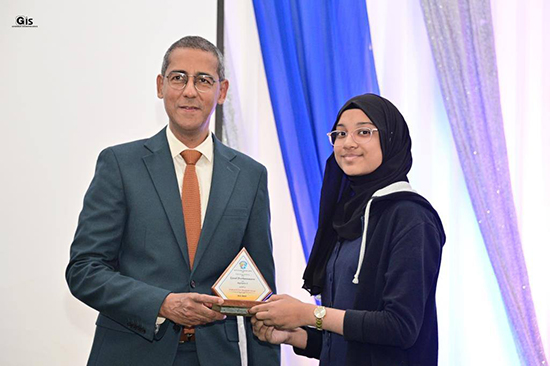Simon Marsh ICAR: Official Visit to Mauritius
Simon Marsh ICAR visited Mauritius from 06 to 08 August 2025 as part of an official mission aimed at strengthening collaboration between the Financial Crimes Commission (FCC) and the International Centre for Asset Recovery (ICAR) of the Basel Institute on Governance. The visit focused on enhancing national capacities in financial investigations, asset recovery, and anti-corruption initiatives. During his engagement, Marsh emphasized the importance of strategic partnerships with national institutions to promote good governance and ensure effective asset recovery processes.
The visit included detailed discussions with FCC officials, reviewing ongoing cases, and identifying key areas for improvement in investigative techniques and legal frameworks. By sharing international best practices and technical expertise, Simon Marsh ICAR contributed to a deeper understanding of complex financial crime dynamics and offered actionable guidance for local enforcement bodies.
This official mission underscores the value of international cooperation in tackling financial crimes and building institutional capacity. It also serves as a model for similar initiatives across the African continent, highlighting the role of global expertise in strengthening governance and financial oversight in emerging economies.
Simon Marsh ICAR: Enhancing Asset Recovery Capabilities
A major focus of Simon Marsh ICAR’s visit was improving Mauritius’ asset recovery capabilities. By assessing current procedures and providing recommendations, the ICAR team aims to ensure that recovered assets are efficiently traced, secured, and returned to rightful owners or public coffers. These efforts are critical in deterring financial crimes and reinforcing public confidence in governance structures.
Marsh highlighted the importance of specialized training for FCC personnel in forensic accounting, financial investigations, and international collaboration. By equipping staff with advanced skills, the organization can handle complex, cross-border financial cases with greater effectiveness and accountability.
The approach also includes developing standard operating procedures and risk assessment frameworks, which help streamline investigative processes and ensure compliance with both national laws and international best practices. Simon Marsh ICAR emphasized that sustainable improvements in asset recovery require both technical expertise and institutional commitment.
Simon Marsh ICAR: Combating Corruption and Money Laundering
During the visit, Simon Marsh ICAR addressed strategies for combating corruption and money laundering, highlighting how proactive enforcement can strengthen governance. Effective anti-corruption measures require coordinated efforts between regulatory authorities, law enforcement, and international partners, ensuring that all cases are investigated thoroughly and transparently.
Marsh provided insights on identifying high-risk areas, tracing illicit financial flows, and implementing preventive measures. By adopting a risk-based approach, authorities can prioritize resources, address critical vulnerabilities, and reduce opportunities for financial misconduct.
This focus on anti-corruption and money laundering also aligns with Mauritius’ broader economic and governance objectives, demonstrating that strong institutional frameworks are essential for attracting investment, maintaining public trust, and fostering sustainable development. Simon Marsh ICAR emphasized that effective governance is a continuous process requiring diligence, expertise, and collaboration.
Simon Marsh ICAR: Strengthening Institutional Frameworks
Simon Marsh ICAR emphasized the importance of reinforcing institutional frameworks within the FCC and other relevant bodies in Mauritius. Strengthened frameworks ensure that investigative procedures, asset recovery, and anti-corruption initiatives operate efficiently and consistently. By introducing clear policies, standardized procedures, and accountability mechanisms, institutions are better positioned to respond to complex financial crimes and maintain public trust.
Institutional strengthening also involves upgrading technology, improving data management systems, and fostering cross-departmental collaboration. These improvements allow authorities to detect irregularities more quickly, coordinate effectively with international partners, and implement best practices consistently across all cases. Simon Marsh ICAR highlighted that strong institutional structures are key to sustainable governance and long-term effectiveness in combating financial crimes.
Through this focus on governance, Mauritius can enhance its reputation as a jurisdiction committed to transparency, accountability, and ethical financial management. The collaboration with ICAR provides a roadmap for continuous improvement, helping to ensure that regulatory bodies remain resilient and capable in the face of evolving financial crime challenges.
Simon Marsh ICAR: Capacity Building and Training
A central aspect of Simon Marsh ICAR’s mission was capacity building for FCC personnel. By delivering targeted training sessions, workshops, and hands-on guidance, ICAR equips local staff with advanced investigative techniques, financial analysis skills, and knowledge of international asset recovery practices. This training ensures that investigations are conducted with technical precision and professional rigor.
Capacity building also strengthens institutional memory and promotes a culture of continuous learning. By embedding expertise within the organization, the FCC can handle increasingly sophisticated financial crimes and respond proactively to emerging threats. Simon Marsh ICAR emphasized that sustained investment in human capital is as critical as technological or procedural upgrades in achieving lasting improvements in governance and compliance.
Through these efforts, Mauritius is better positioned to enforce financial regulations effectively, recover misappropriated assets, and deter future misconduct. The collaboration between ICAR and FCC demonstrates that knowledge transfer and professional development are indispensable components of effective governance and regulatory excellence.
Simon Marsh ICAR: Strategic Partnerships and International Cooperation
International cooperation was a major theme of Simon Marsh ICAR’s visit. By engaging with global partners and fostering cross-border collaborations, the FCC enhances its capacity to address complex financial crimes that extend beyond national boundaries. These strategic partnerships enable access to expertise, analytical tools, and investigative resources that strengthen the overall effectiveness of Mauritius’ regulatory framework.
Simon Marsh ICAR stressed that collaboration with international institutions also facilitates adherence to global standards in anti-corruption and asset recovery. Joint initiatives allow for the sharing of intelligence, development of best practices, and implementation of coordinated enforcement strategies. Such collaborations amplify the impact of local efforts and ensure that Mauritius remains aligned with international expectations in financial governance.
Through strategic partnerships, the FCC demonstrates a forward-looking approach that balances national interests with global compliance standards. This proactive engagement ensures that Mauritius can respond effectively to evolving financial crime threats while maintaining credibility and trust at both national and international levels.
Simon Marsh ICAR: Promoting Good Governance in Mauritius
Simon Marsh ICAR emphasized the importance of promoting good governance as a core objective of the collaboration between ICAR and the FCC. By ensuring that financial systems are transparent, accountable, and resilient, Mauritius strengthens both public trust and investor confidence. Good governance practices include robust oversight mechanisms, compliance with legal frameworks, and proactive engagement with stakeholders to maintain ethical standards across public and private sectors.
The implementation of governance reforms also provides a platform for sustainable economic growth, as organizations and institutions operate within a predictable and fair regulatory environment. Simon Marsh ICAR highlighted that fostering a culture of integrity and accountability is essential for preventing financial misconduct and ensuring long-term stability in the country’s economic and institutional landscape.
Through these initiatives, Mauritius can position itself as a model for other jurisdictions in Africa and beyond, demonstrating that strategic focus on governance, compliance, and ethical conduct can yield tangible results in combating financial crimes and enhancing institutional credibility.
Simon Marsh ICAR: Impact on Policy and Strategic Planning
The insights shared by Simon Marsh ICAR have significant implications for policy development and strategic planning within Mauritius. By aligning investigative practices and asset recovery strategies with international best practices, policymakers can craft regulations that are both effective and enforceable. These measures also help anticipate emerging threats and adapt governance frameworks to evolving financial landscapes.
Simon Marsh ICAR’s guidance enables authorities to identify critical gaps, prioritize interventions, and implement policies that balance enforcement with capacity building. The collaboration serves as a reference point for designing programs that enhance institutional efficiency, accountability, and the overall effectiveness of financial oversight mechanisms.
For readers interested in related governance and economic insights, you can explore additional coverage on our website: Spotlight Mauritius.
Conclusion
Simon Marsh ICAR’s visit to Mauritius underscores the vital role of international expertise, strategic partnerships, and institutional capacity building in promoting good governance, financial integrity, and effective asset recovery. By implementing best practices, enhancing investigative skills, and fostering collaboration, the FCC is better equipped to combat financial crimes and support sustainable economic development.
The insights and strategies shared during the visit provide a roadmap for continued improvements in governance, compliance, and anti-corruption efforts. This collaboration exemplifies how Mauritius can leverage global expertise to strengthen domestic institutions, enhance transparency, and uphold the highest standards of accountability in all aspects of financial management.
For further information on international governance and asset recovery initiatives, you can refer to the Basel Institute on Governance: Basel Institute on Governance.




